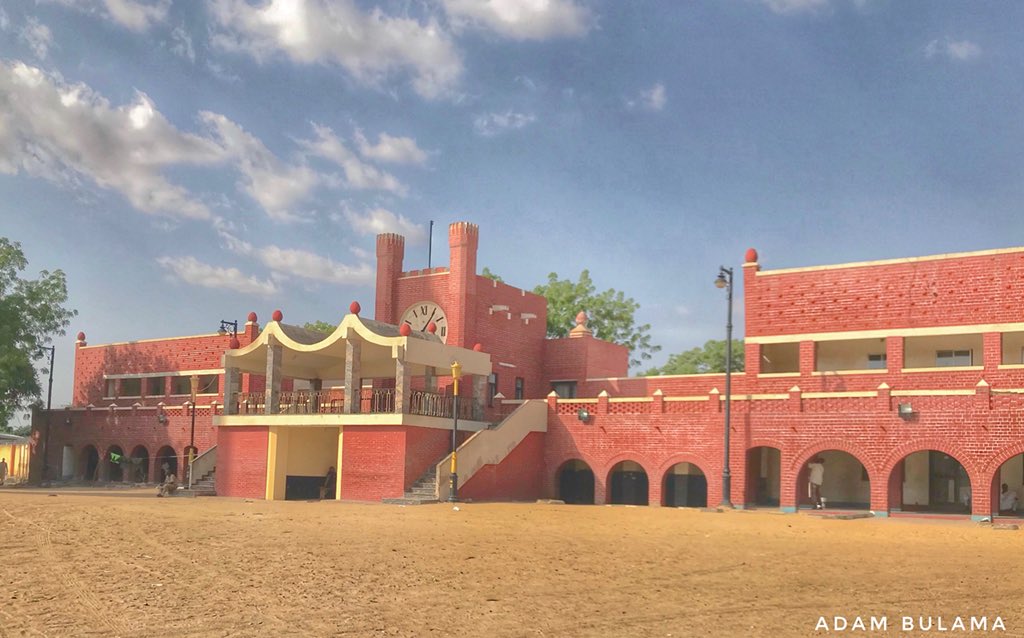Brief History
Borno state, otherwise known as ‘Home of Peace’, is a state in the North-East geopolitical zone of Nigeria, bordered by Yobe to the west, Gombe to the southwest, and Adamawa to the south while its eastern border forms part of the national border with Cameroon, its northern border forms part of the national border with Niger, and its northeastern border forms all of the national border with Chad, being the only Nigerian state to border three foreign countries. It takes its name from the historic emirate of Borno, with the emirate’s old capital of Maiduguri serving as the capital city of Borno State. The state was formed in 1976 when the former North-Eastern State was broken up. It originally included the area that is now Yobe State, which became a distinct state in 1991
Borno is the second largest in area of the 36 states, only behind Niger State. Despite its size, the state is the
eleventh most populous with an estimated population of about 5.86 million as of 2016. Religiously, the vast
majority of the state’s populations (85%) are Muslim with smaller Christian and traditionalist minorities
(especially in the south) at around 7% each.
Festivals and Traditions
- Barakau Annual Festival: This is a famous festival performed by the three tribes of Karai-Karai, Ngoma and Ngizim who are found in Potiskum, Nangere, Fika and Fune Local Government Areas. The festival is an annual event and takes place between the months of June and September, it is performed by killing an aged cock of
over one year old and its blood is allowed to flow on all farming implements of a household (each household or a group household can perform the ritual). After cooking the cock, the women carry some of the food on their heads to the oldest person’s house in the community along with the farming implements. The elder will
then pray for high yield, abundance and blessed season. The women then, carry the food back home and give it to invitees to eat. After the meal, there will be different kinds of traditional dances by different age groups.
- Durbar Festival: The Durbar reflects the state’s cultural and historical dignity. It is a significant royal display of horsemanship mainly organized to mark important occasions and Sallah festivities. The Durbar is characterized by royal horsemen, dances and gorgeous – horses, trumpeters led by the Shehu, Emirs,District heads and other traditional title holders as the case may be.
- Minwara (Menwara) Festival: For the people of Shani local government area in Borno State, Minwara festival, held annually, is not only a centuries-old tradition, but an opportunity to meet social expectations. The festival, therefore, has multidimensional significance. Shani, which lies in Southern Borno between Guyuk and Biu local government areas of Adamawa and Borno States receptively, recently played host to numerous people including past military administrators of Borno state, past and present top government functionaries, people from neighboring local
governments areas as well as its sons and daughters from far and near to be part of the Minwara festival.
Tourists Attractions and Locations
- Biu Plateau: Biu Plateau was discovered 66 million years ago by Natives in the Biu area. Very few people know that Nigeria used to have active volcanoes – and some of the great spewers can still be found, now dormant, in several parts of the country. One of these is the glorious, noble, Biu Plateau. Biu Plateau is a highland that consists of currently extinct volcanoes.
- Sambisa Game Reserve: Sambisa Game Reserve was built in 1970 to serve as a safari. It is notable as a conservation center for wildlife. It was built by Colonial masters. However, from the early 2000s, Boko Haram took over Sambisa forest and all activities in Sambisa Game Reserve died down.
- Chad Basin National Park: Chad Basin National Park is a wildlife haven. The result of the combination of the Chingurmi-Dugoma game reserve, Gorgoram and Zurgun Baneri forest reserves, and Bulature oasis, the Chad Basin national park is a top spot for bird watching, picnics, wildlife observation or talking a walk with nature.
- Mandara Mountains: Mandara Mountains is notable as one of the places of interest to visit while in Borno. Located between the Nigerian-Cameroon borders is Mandara mountains where the view is said to be unrivaled. You are welcome to climb, enjoy the view or take landscape shots.
- Lake Alau: Lake Alau is notable as the source of livelihood for the surrounding Borno community. It is the major source of water for irrigation, farming and also a fishing site for the Maiduguri community and nearby communities.
- Borno State Museum: Borno State Museum is notable as a historical site. Borno state museum is a haven for artifacts and relics that re-tell the historic past of the people.
- University of Maiduguri: The University of Maiduguri was built in 1975. It is notable as an institution of higher learning built by Federal Government of Nigeria. Unimaid as it is called for short is a top-flight tertiary institution renowned for both its academic and non-academic prowess. With its wide range of local and
international awards and notable alumni, it is indeed a top-choice institution.

